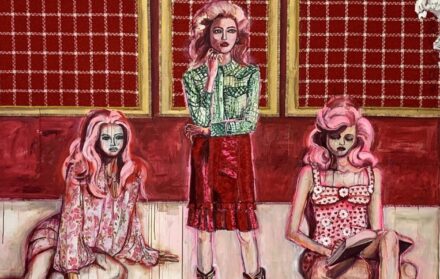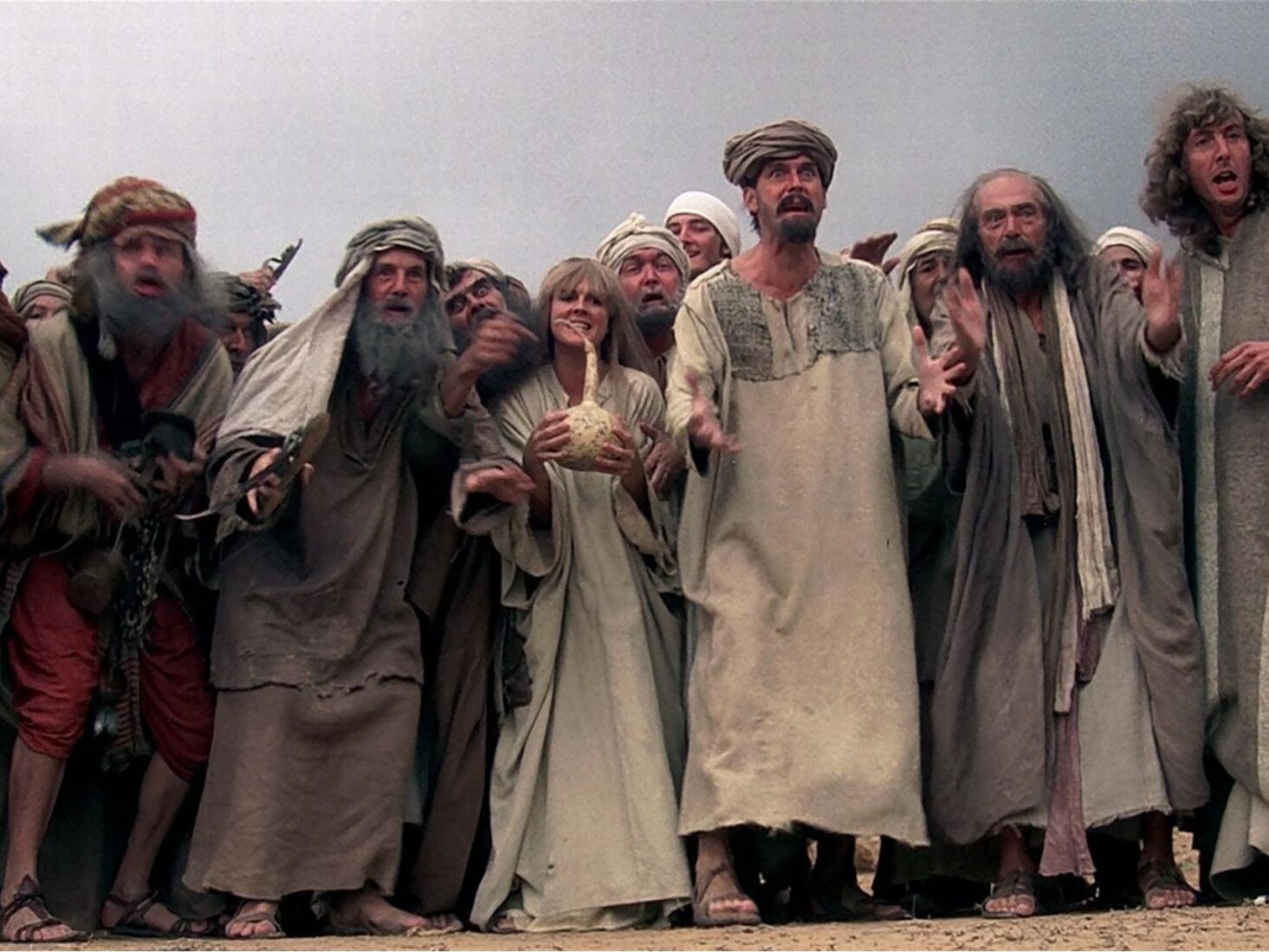
The last laugh: Monty Python 50 years on
Half a century on from the very first episode being broadcast to a bewildered Britain, we explore how Monty Python’s surreal anarchy made its way from student digs to superstardom.
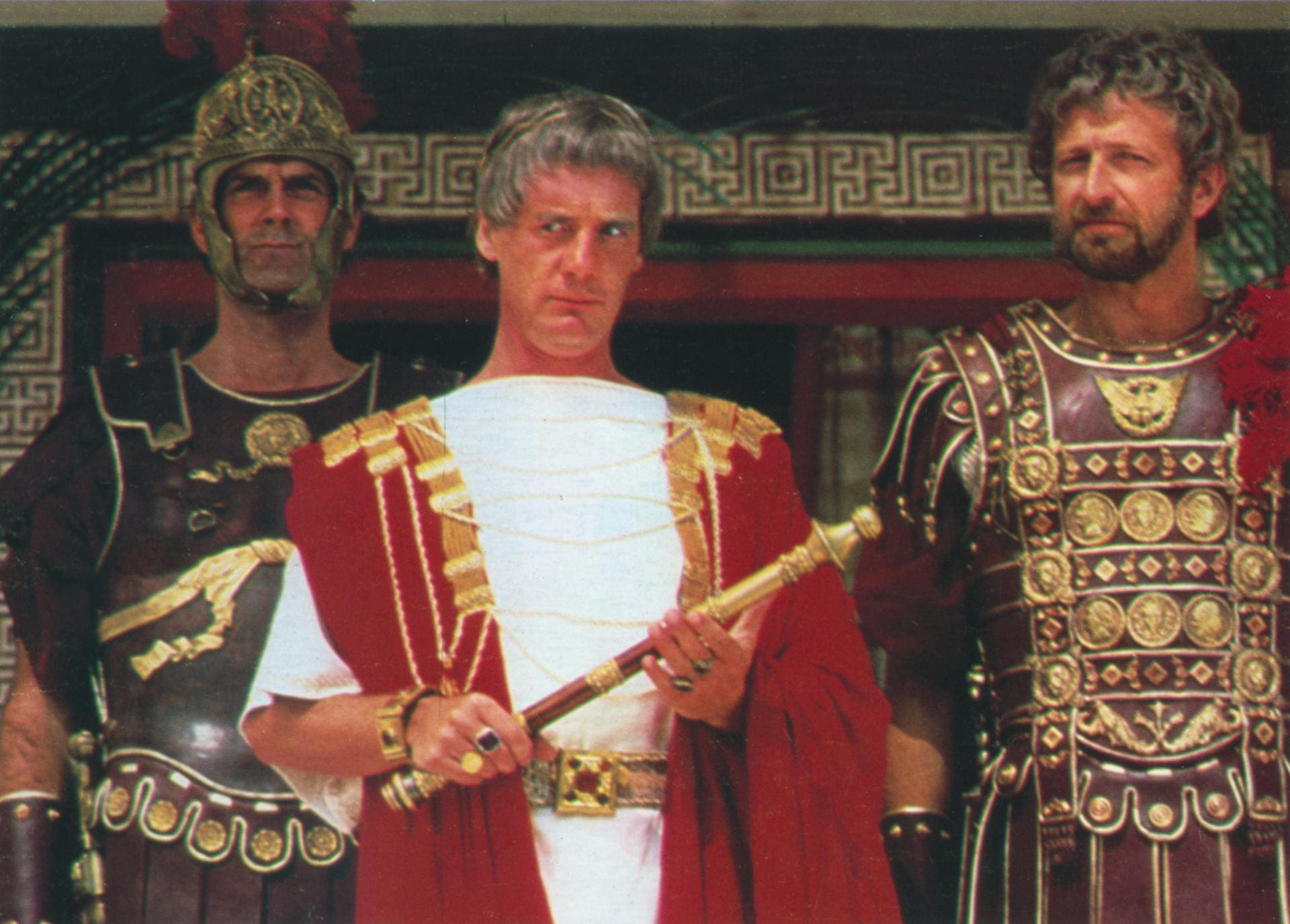
Boarding schools, corporal punishment, inedible dinners and endless respect for your elders. If you were a child growing up in provincial 1950’s Britain, even being a member of the relatively prosperous middles classes didn’t mean much in the way of luxury or privilege.
In drab towns and villages from Western Super Mare to South Shields, life after the war, if you happened to be a bright child with artistic tendencies, centred on getting out of these remote places and to Oxbridge, where, if you’d read the right Evelyn Waugh novels, you could still believe that a fantasy life of port, punting and promiscuity awaited.
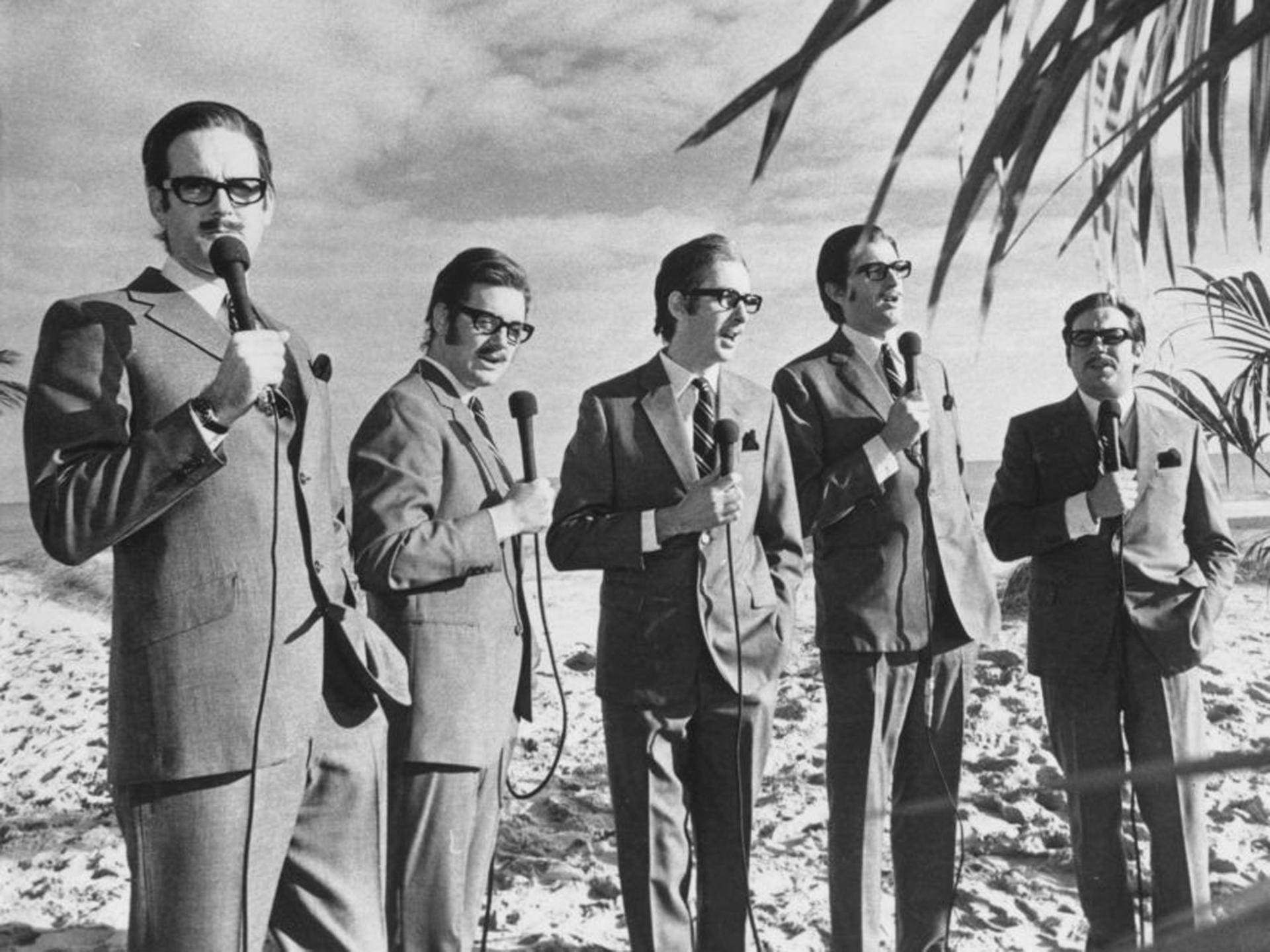
John Cleese (from Weston-super-Mare), Eric Idle (from South Shields) along with Michael Palin (Sheffield), Terry Jones (Colwyn Bay) and Graham Chapman (Leicester) were all the sort of bright children who had exactly these kind of aspirations.
Though how this morphed into a comedy phenomenon now entering its half century is a tale as unlikely as any silly walks ministry or self defence against soft fruit class. For these were the kind of comedic legends that emerged from the minds of these men who were expected, in the cases of Cleese and Chapman, to grow up to become quantity surveyors and doctors. These teenagers, mostly ensconced in old fashioned boarding schools, were, however, able to receive voices from beyond the grimness of these Victorian educational barracks.
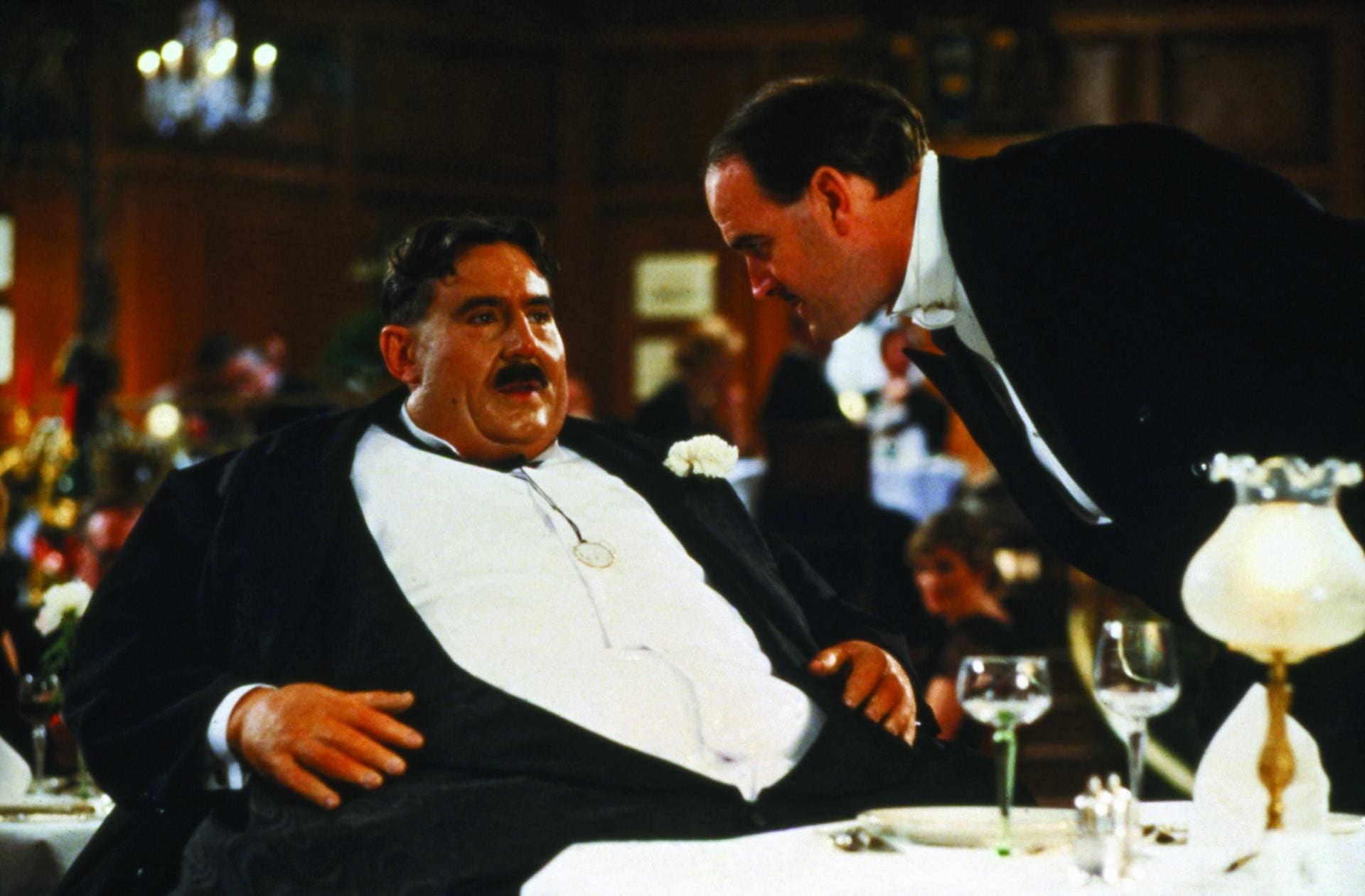
Thanks to crackly Bakelite radios, the likes of Stanley Unwin’s Showtime and The Goon Show provided an anarchic and still deeply strange comedic universe that would prove to be immense influences on the team that would become Python. All five future Python’s went to either Oxford or Cambridge; part of the first generation of men from outside the Etonian realm who were able to get into these hallowed halls. It was here that they would watch, and be mesmerised, by Beyond the Fringe, the group consisting of Peter Cook, Dudley Moore, Jonathan Miller and Alan Bennet who were fast becoming the pioneers of modern satirical comedy.
“I didn’t even know that you were allowed to be that funny,” recalled Eric Idle who admitted to literally falling out of his seat with laughter when he first watched his older Oxbridge compatriots on stage. University revue shows and the Edinburgh Fringe all beckoned for the boys themselves, with Jones and Palin and Chapman and Cleese already establishing themselves as formidable writing duos.
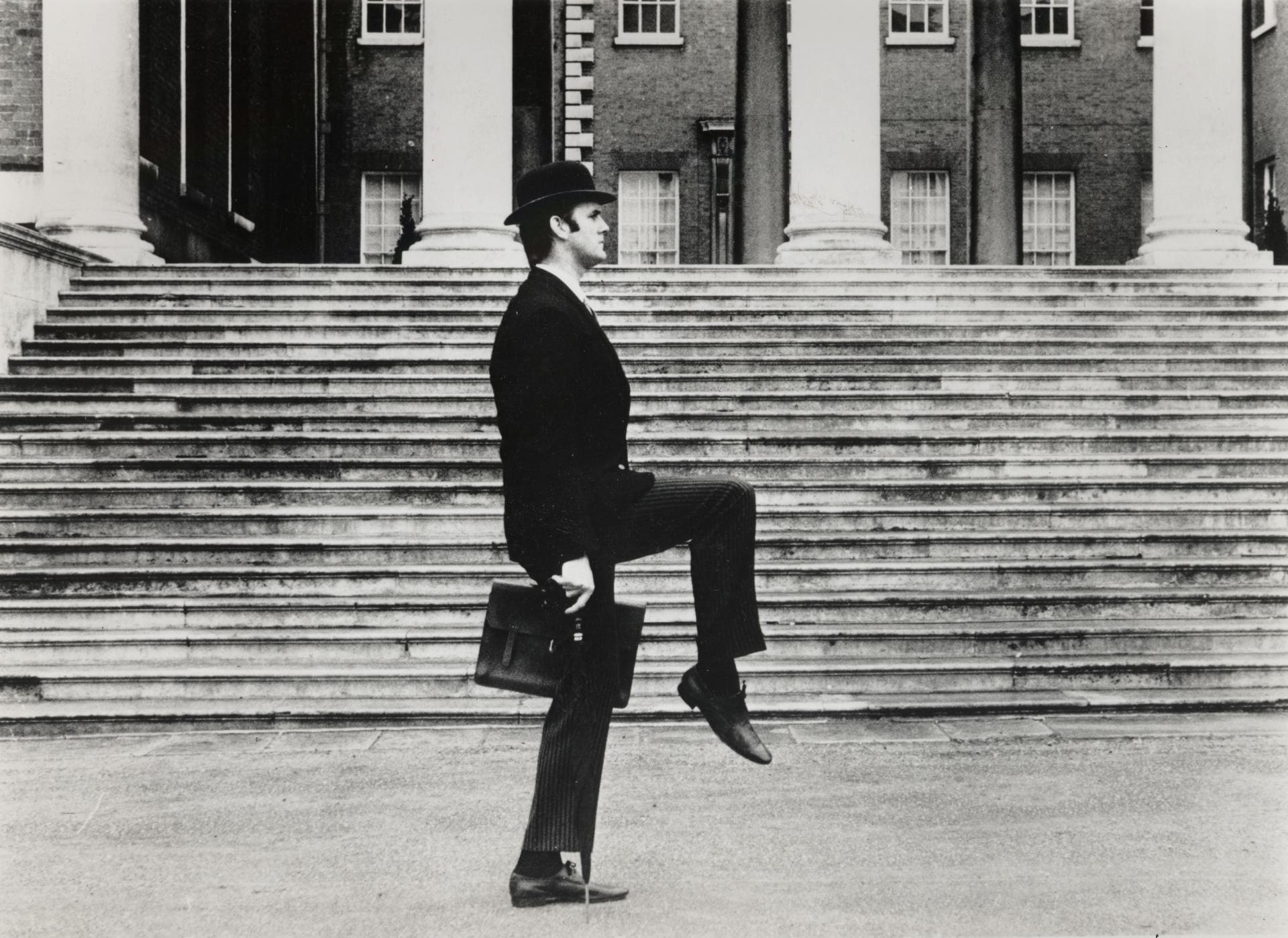
It was in the Scottish capital, in the summer of 1963, that the four men, plus Eric Idle who was also performing in a sketch show, would first meet and, almost immediately, discover that, among their audiences, were TV execs and theatre producers on the lookout for fresh talent. And so, aged just 22, Cleese and Chapman went Stateside, to star in a Broadway adaption of their show ‘Cambridge Circus’. It was whilst in New York that the duo met Terry Gilliam. A graduate of political science in California, it would be through his animations and cartoons that this young man from Minneapolis would find his creative voice.
Working for a humour magazine called ‘Help’, Gilliam met Cleese and Chapman in a bar in Greenwich Village. He would be the last to join the Python’s, staying in America whilst the five others came together as writers for the very first time on ‘The Frost Report’, a sketch show headed by David Frost.
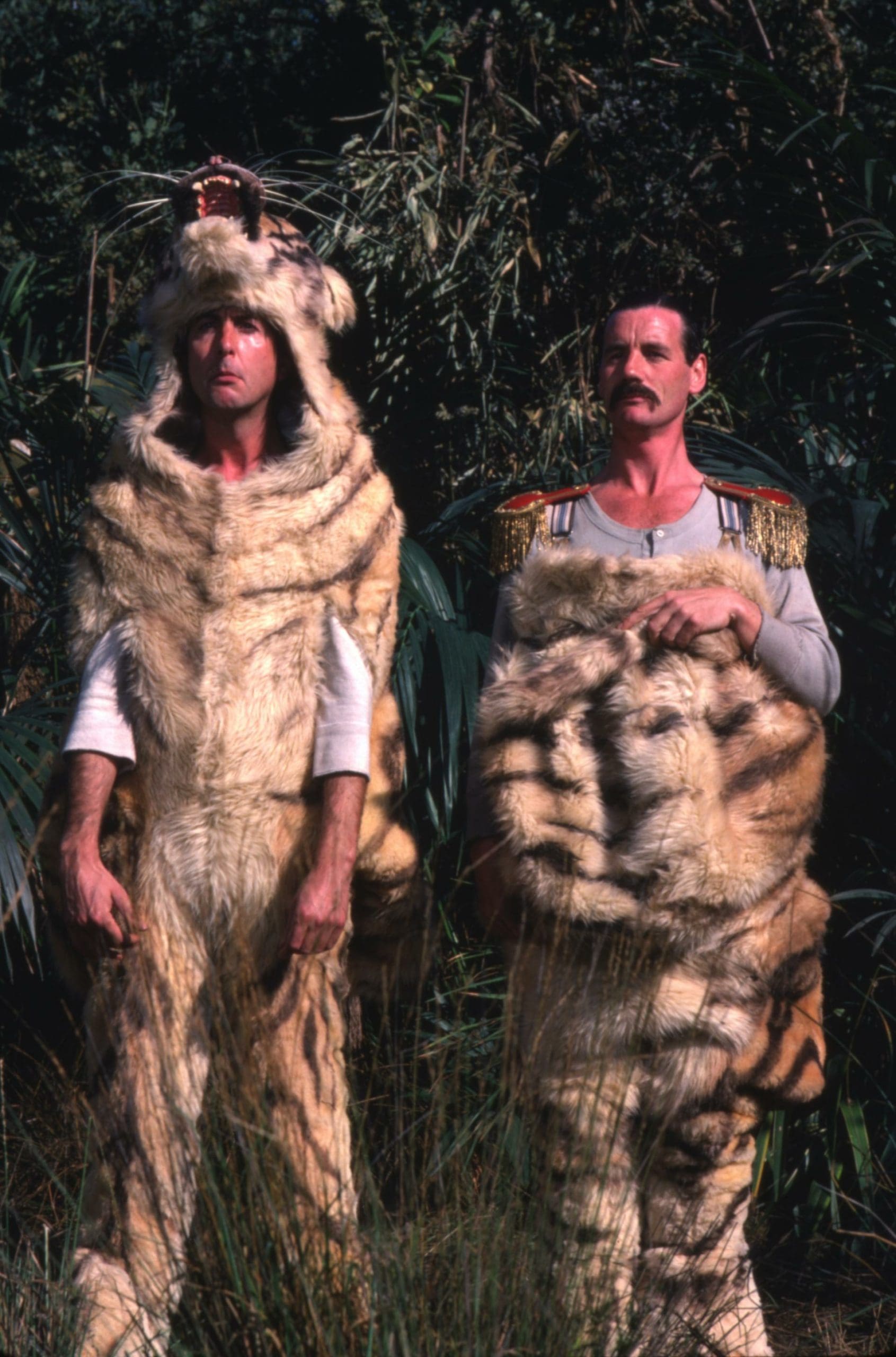
Another Oxbridge man, Frost took the early 1960’s satire boom onto television with ‘That was the week that was’, a smash hit show that was only cancelled when it was believed, by BBC bosses, that its scathing lampoons of politicians could influence voters in the forthcoming 1964 general election.
It was inside the writers’ room of Frost’s next show, The Frost Report that the Python’s-to-be really honed their craft; working on a live show to tight deadlines in an environment where no idea was too far out to be considered for a weekly audience of 14 million.
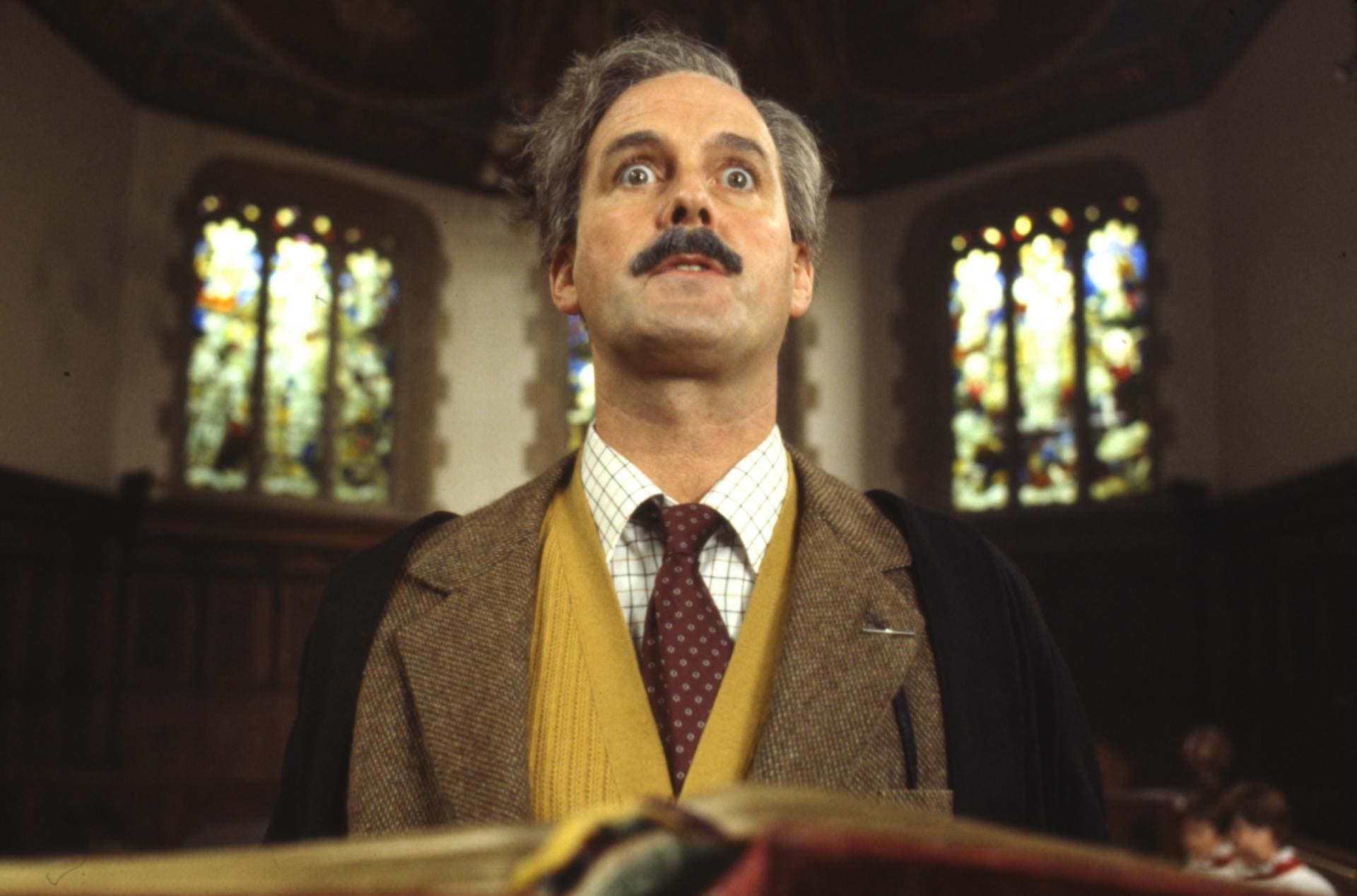
Cleese and Chapman would go on from there to form one half of the four man team that made ‘At Last… the 1948 Show’, in 1967; a show that ventured considerably deeper into the surreal with sketches involving deranged psychiatrists and ferrets.
Eric Idle, along with Terry Jones and Michael Palin however, went down the road of children’s programming, writing and performing in a show called ‘Do not adjust your set’. Attracting a sizable adult audience, despite its weekday afternoon timeslot, the show had live music from the Bonzo Dog Do Dah Band and its strange, bohemian air caught the attention of Terry Gilliam who having made his way to London, forced his way onto the show to provide animated segments. Finally, in 1969, it was Cleese who contacted Palin and Jones to ask if the two writer duo’s plus Idle and Gilliam should work together.
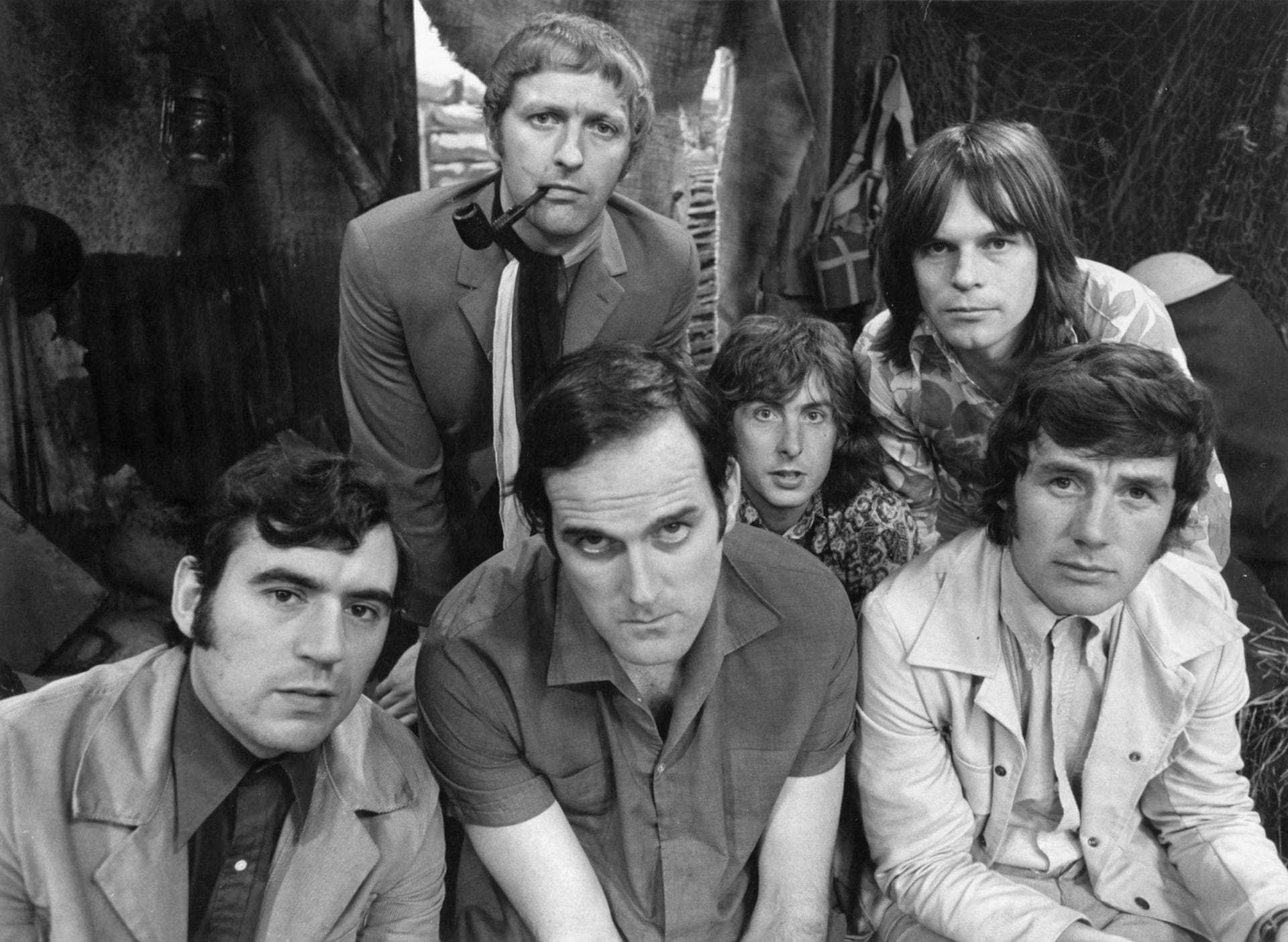
“They’d just done another show called ‘A Complete and Utter History of Britain’, Cleese recalls of Jones and Palin’s most recent work.
“I contacted them and said ‘well, you won’t be doing any more of those will you?’ We were always putting each other down….”
Nobody can remember where the first meeting of all half dozen men took place in April 1969. Some remember it as being in a park, others in an Indian restaurant. What’s certain is that their subsequent meeting with Michael Mills, head of comedy at the BBC, was the final breakthrough: “We were intimidating because we didn’t give a damn,” recalls Cleese. “We wanted it all on our own terms. We weren’t overawed in any way.”
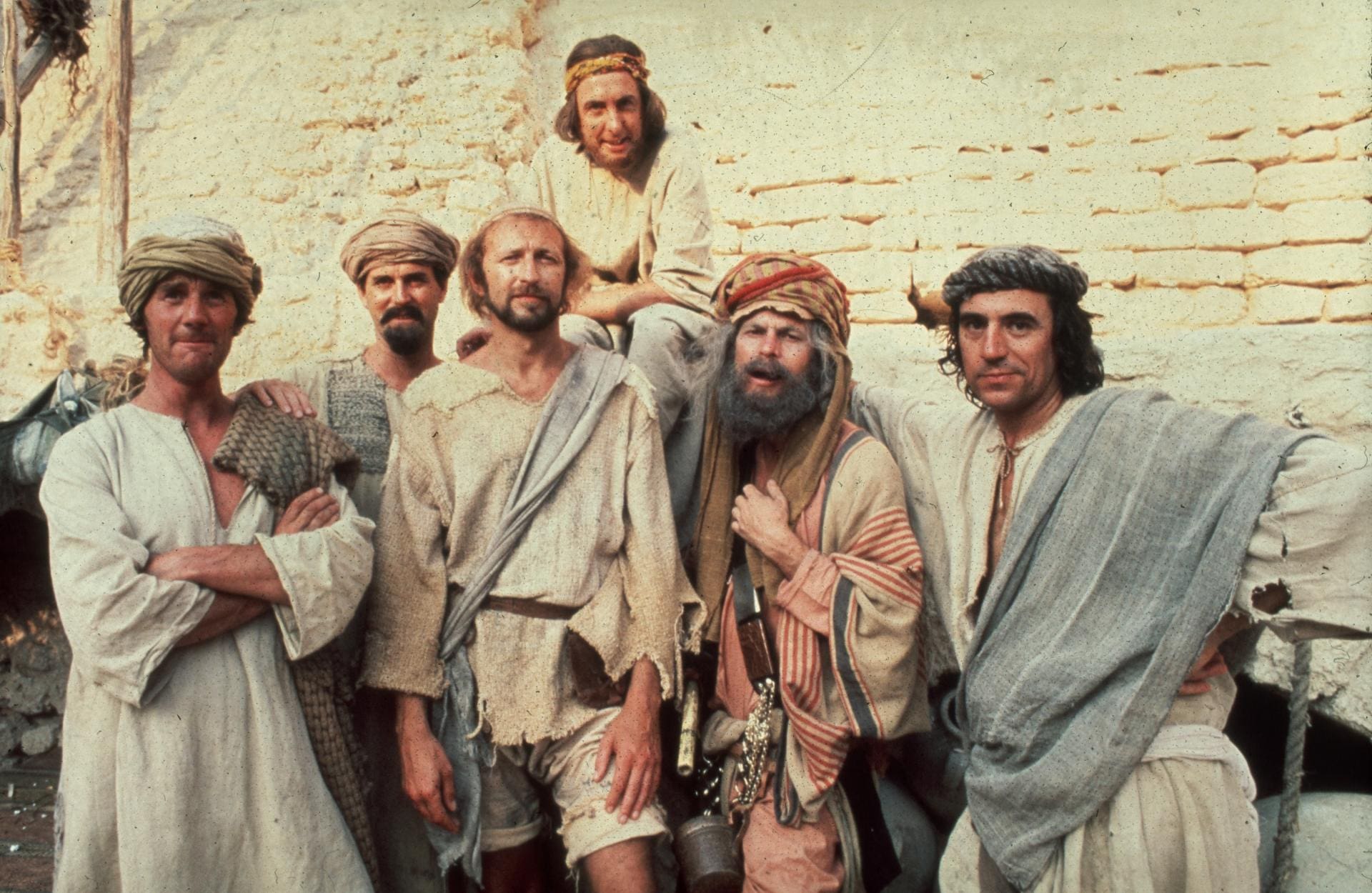
‘Owl-Stretching Time’ and ‘The Toad Elevating Moment’ were all put forward as titles before Monty Python was agreed on. And so finally, in the less than desirable timeslot of 10:55pm on a Sunday night on the 5th of October 1969, the first episode was aired.
Called ‘Whither Canada’, the country was, in a style true to form for Python, never once mentioned in the entire programme. From that moment, comedy would never be the same again, fast forward half a century and with one Python dead (Graham Chapman who died of throat cancer in 1989) and with Terry Jones suffering from dementia, the Python story is now almost at an end; the remaining members of the gang steadfastly refusing to reunite for the 50th anniversary this year.
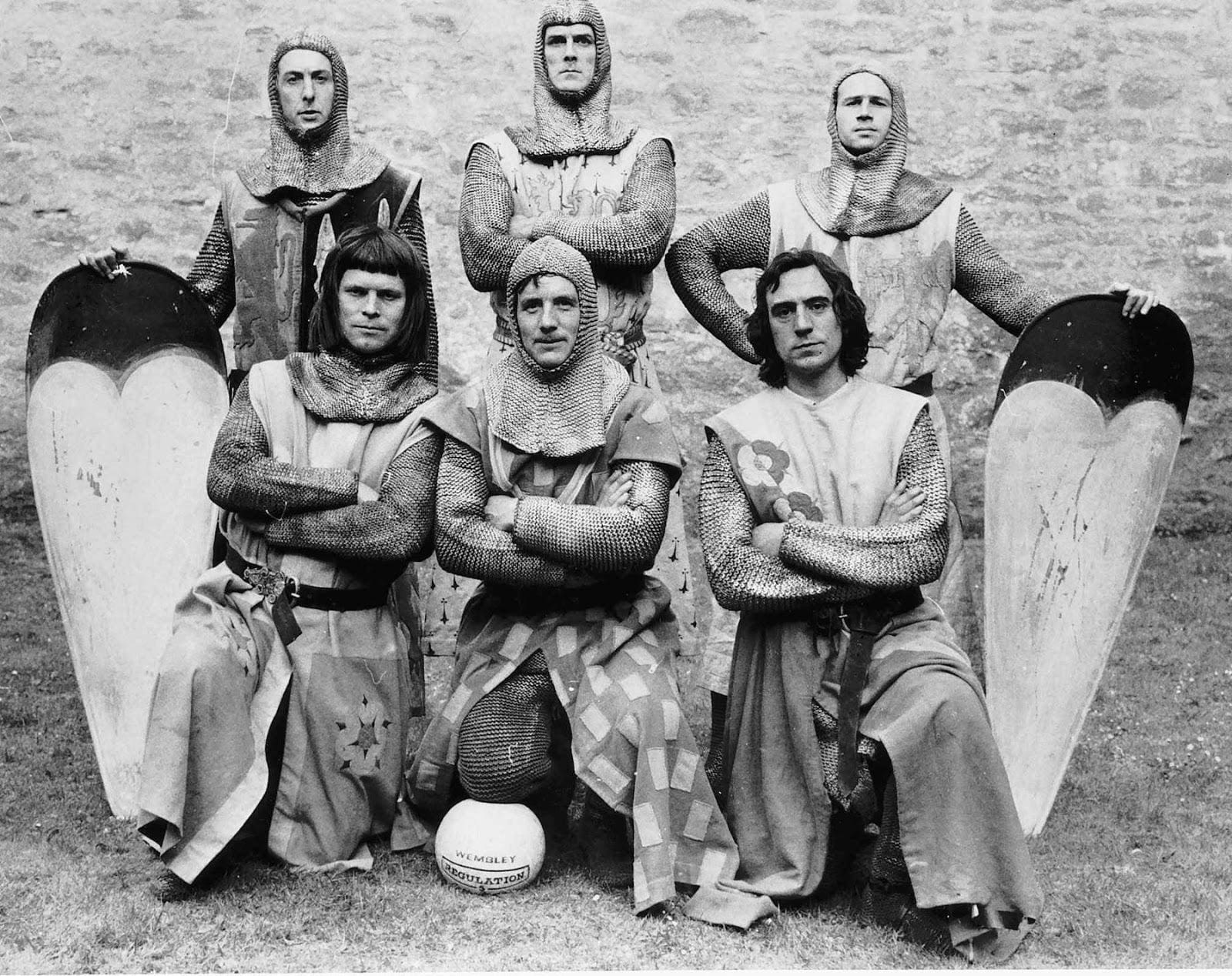
It was Terry Gilliam the only American and perhaps the closest thing to an ‘outsider’ in the Python gang who perhaps best described how these young Englishmen from the most unprepossessing provincial backgrounds, changed the comedy landscape forever.
“There are a lot of people who have come to believe in Python as a form of honesty, as opposed to what is normally presented on television,” Gilliam stated in an interview.
“Here is a show that is outspoken, says what it wants to say, does extraordinary things, takes all sorts of chances, is not out to sell corn plaster, or anything. It is out to entertain, surprise, enlighten even, the people that are viewing it.”






